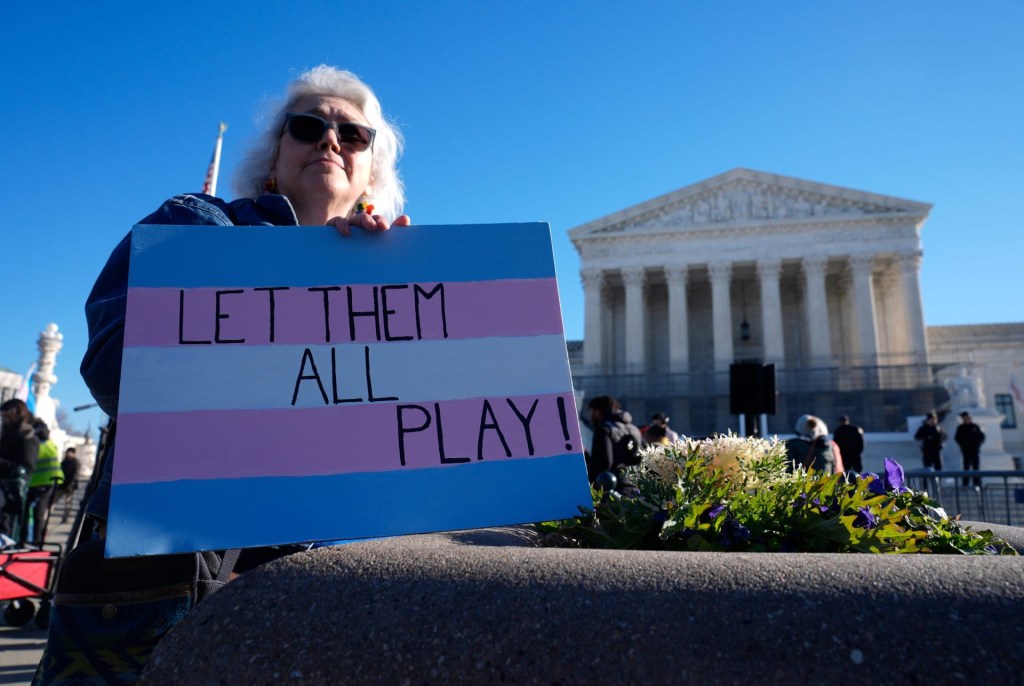Former Stanford football coach Troy Taylor is suing ESPN and its reporter for defamation, claiming the outlet knowingly published false information about him in a March story that led to his firing.
The complaint, filed Wednesday in the Northern District of California, centers says ESPN and reporter Xuan Thai “intentionally twisted the facts to advance a particular narrative and made (and repeated) patently false statements about Taylor for the purpose of harming his reputation and pressuring Stanford to fire him.” Spokespeople for ESPN and Stanford declined to comment, while Thai did not immediately respond.
A lawyer for Taylor told the Sacramento Bee that ESPN “repeatedly made false statements about the investigatory findings to paint Troy as a misogynistic bully” and that they filed the suit so Taylor could return to coaching.
ESPN published the story, headlined “Reports find Stanford’s Taylor bullied, belittled female staffers” written by Thai on March 19, and Stanford fired Taylor six days later. (He also went 3–9 in both of his seasons on The Farm.)
The ESPN article detailed two separate investigations Stanford conducted with a third party firm, neither of which resulted in disciplinary action for Taylor. Investigators found Taylor, as well as senior associate athletics director Matt Doyle, had violated school standards and treated staff inappropriately, ESPN reported. More than 20 former and current staffers participated in the investigations, ESPN said, which documented Taylor’s hostile and aggressive behavior, particularly toward women, as well as his attempts to get the NCAA compliance officer fired.
“Under Coach Taylor’s leadership, the football program has disregarded or simply not followed NCAA rules that they have been repeatedly and consistently educated on by the Compliance Office,” wrote one of the investigators, who found seven minor NCAA violations from 2022 to 2024. The investigator wrote that Taylor sought to get the compliance officer fired after she brought up some of the violations, ESPN said.
Taylor signed a letter in Feb. 2024 after the first investigation acknowledging that he could be fired if his conduct continued, ESPN reported. The second investigator in July 2024 found a “continuation” of that behavior, according to ESPN, but Taylor remained on the job. He coached a second straight 3–9 season in the fall.
“I willingly complied with the investigations, accepted the recommendations that came out of them, and used them as a learning opportunity to grow in leadership and how I interact with others,” Taylor said in the statement to ESPN for its story. “I look forward to continuing to work collaboratively and collegially with my colleagues so that we can achieve success for our football program together.” Wednesday’s lawsuit says the headline and certain sentences in this story were false, and that “pulling snippets of the First Investigation report and mixing them with snippets of the Second Investigation report, all without providing proper context” was misleading.
The lawsuit also mentions another article from ESPN that it says pressured general manager Andrew Luck, the former Cardinal quarterback now serving as Taylor’s boss, to fire the coach.
On March 25, less than a week after the first ESPN story, Stanford announced it had fired Taylor. After initially showing support for Taylor after the first article came out, the suit says, Luck publicly said the program needed a “reset.”
Taylor issued a statement in April saying the media portrayal of him was “unfair, wrong, and contrary to my professional track record and the person I am and have always been.” Taylor said the school fired him “without cause,” and he never saw reports from either investigation. He said he didn’t agree with the findings of the investigations but accepted to forfeit the raise he had previously agreed to receive.
ESPN covered his denial in an April 16 story entitled “Ex-Stanford coach Troy Taylor takes issue with investigation.” The lawsuit claims that in this story, ESPN “finally—and grudgingly—acknowledged key facts that contradicted their earlier reporting.” That claim centers around the following paragraph:
“While the investigation was initially launched in response to a single complainant who alleged gender bias and ‘a culture problem in football,’ the investigation ultimately included interviews with at least 20 Stanford athletic department staffers regarding four allegations against Taylor. Three of the allegations regarding belittling and inappropriate behavior toward multiple women were deemed to have merit. The investigator did find ‘insufficient evidence’ regarding the original complaint.”
The “key facts” the lawsuit references are that there was a single complainant for the original investigation, whose complaint was not substantiated. The suit also says the sentence about the other allegations having merit is untrue.
The suit says Taylor sent ESPN letters saying their reporting on him was not true, to which the network responded in May that it “fully stands by both the accuracy and propriety of its reporting.” The former coach, who won 30 games in four years at Sacramento State before taking the Stanford job, is seeking at least $75,000 in damages.

















